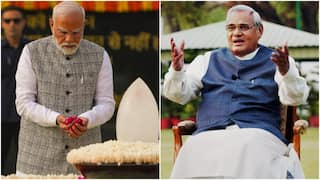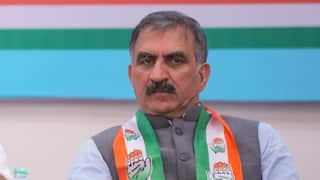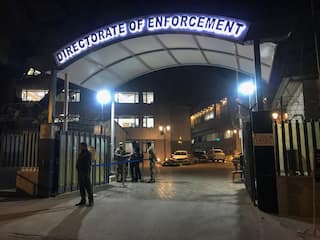Setback For Imran As SC Sets Aside Dy Speaker's Ruling, Pak PM To Face No-Trust Vote On Saturday
The security in and around the apex court has been beefed up. Riot police have been deployed outside the apex court.

New Delhi: In a massive setback for embattled Prime Minister Imran Khan, the Supreme Court of Pakistan on Thursday dismissed deputy speaker's ruling to dismiss the no-trust resolution against Khan and the subsequent dissolution of the National Assembly by the President on the PM's advice, Dawn reported.
While announcing the verdict, Chief Justice of Pakistan Umar Ata Bandial said that Prime Minister did not have the right to advise the president to dissolve the assembly.
OPINION | Constitutionally Speaking, Pakistan National Assembly Is Still In Session. Know Why
The SC declared as unconstitutional the controversial ruling by the deputy speaker regarding the rejection of the no-confidence motion in Parliament. In a unanimous verdict, the five-member bench also declared the dissolution of the Parliament 'unconstitutional'.
The court ordered the speaker to call the session of the assembly on April 9 (Saturday) at 10 am to organize the no-confidence vote.
According to reports, the security in and around the apex court has been beefed up. Riot police have been deployed outside the apex court.
The apex court delivered the verdict on the crucial case concerning the legality of deputy speaker Qasim Suri's move to dismiss a no-confidence motion against PM Khan through a controversial ruling.
During the hearing on the fourth day, Chief Justice Bandial noted deputy speaker's ruling is, prima facie, a violation of Article 95.
ALSO READ | UN General Assembly Suspends Russia From Human Rights Council, India Abstains From Voting
Bandial said that it was clear that the April 3 ruling of National Assembly Deputy Speaker which dismissed the no-confidence motion against Prime Minister Imran Khan, was erroneous, Dawn had reported earlier.
"The real question at hand is what happens next," he said, adding that now the PML-N counsel and the Attorney General of Pakistan (AGP) Khalid Jawed Khan would guide the court on how to proceed.
Trending News
Top Headlines






































